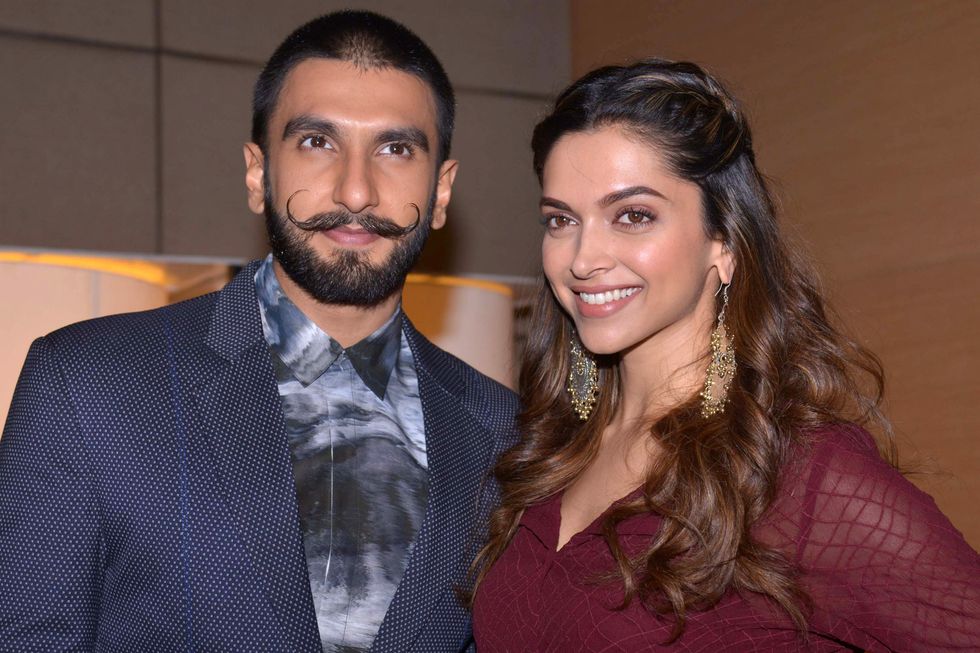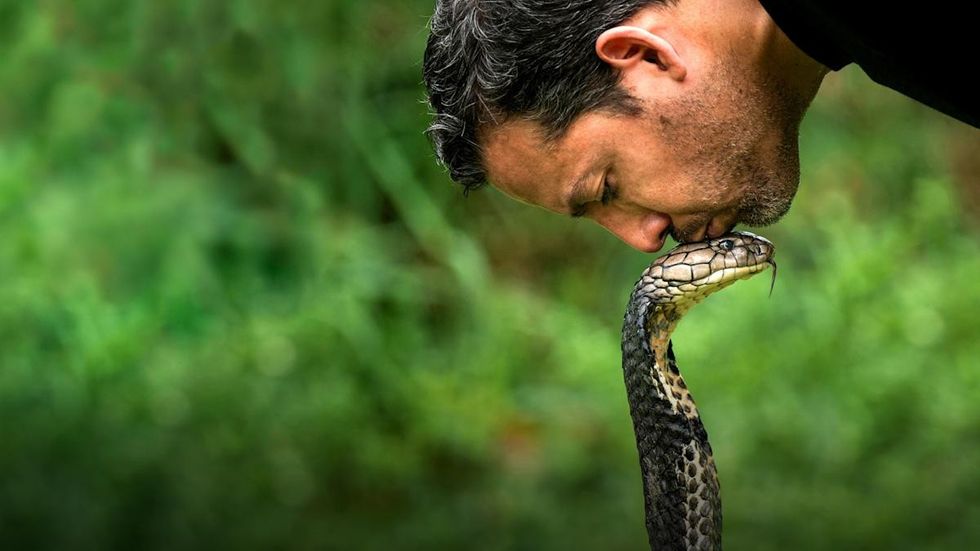After the success of Padmaavat earlier this year, Shahid Kapoor is currently seen in filmmaker Shree Narayan Singh’s Batti Gul Meter Chalu, a social drama film about unjustified electricity bills and a host of problems they cause. Kapoor plays a fun-loving but extremely clever lawyer who extracts money from people in the name of out of court settlements. However, he chooses the right path when his childhood friend tries to commit suicide after receiving an exorbitant electricity bill of ₹ 54 lakhs months after setting up a printing press in town. The movie opened in cinemas on 21st September and has been receiving good response from audiences. In this interview, Shahid Kapoor talks to Mohnish Singh about the movie, his role and why he wants to take up only one project at a time.
You don’t say yes to every movie, what made you choose Batti Gul Meter Chalu?
I hope to believe that most actors are like that, otherwise, everybody would be doing 6 films at a time. I think the time has changed and now it doesn’t matter how many movies you are doing. What matters is how well the movie that you do does and is liked and loved. I think you need to give it all your attention. Today actors are quite aware of the fact that expectations always are high and criticism is also high, so you understand that you need to really do everything you can do for the movie. I do one film at a time.
What excited you about this film?
What excited me about this film fundamentally, obviously, was the issue that it was dealing with. But what was pleasantly surprising and more exciting was the fact that it was a very entertaining and fresh film. I felt the character of the film was fresh. The character that was offered to me is very different from what I have done to date.
Can you tell us something about the character that you play in the movie?
I don’t know if you guys will like him or not. You all might not like him. So, that’s my disclaimer. S. K. might not necessarily be a nice guy. He is a little full of himself. The way he talks is very raw. He is rough around the edges. In fact, you could say that he is the kind of guy that stands out in company with big localities like Bandra or even beyond Juhu. So, he is that type of a guy. I hope people like him, but I have just been honest to the role that was given to me and I felt like that’s the guy and that’s how he needs to be played.
What is the movie about?
The core issue of the film is not that the electricity is present or not, but since when electricity has been privatised, the bill for the consumption is increasing. Electricity is a fundamental human right. It’s a necessity. For that how much money are you ready to give and for how long will the electricity be affordable? And if tomorrow you receive a bill, due to faulty meters or something - and there are a lot of cases like this - there is nowhere for you to go and be heard. In the film, a character is driven to the point where he actually thinks of killing himself. So, that is something everyone can relate to.
How was it working with Shree Narayan Singh?
I had a great time working with him. He was very encouraging and a lot of what I have done in the film is because of him. A lot of whatever I could understand of the character also came from him, the world came from him. The kind of language he has chosen, it’s a bit sing-song. He created something unique and different. He has knowledge that there is something like this happening and I have learnt a lot from him.
The trailer of the film gives away the surprise element. Why do you think that is?
There are two types of approaches that filmmakers have towards putting the first trailer out and I have worked with both types. Both have worked and in the recent past, making your film accessible in terms of telling the people what this film is about has worked very well because today people don’t want to be fooled like you show something else and you get something else. So, when you are not very open about your content, sometimes that can work in your favour because it’s curiosity but sometimes people can be misled and can come with an assumption of what the film is and then they don’t get what they thought the film was.
How did you prepare for the courtroom scenes?
I was told not to prepare for that scene. I was told you should not look like a prepared lawyer because this is not your comfort zone. You should look like a sore thumb in that courtroom, making everyone think how did this guy come here and what is he doing? So that was a clear brief given to me. The more you look out of place in this courtroom, the more correct it is for the character because he is not a professional lawyer.
Was it difficult to shoot?
It’s very difficult because when you are doing courtroom dramas, there is a lot of dialogue, there are a lot of facts and figures which need to be remembered and it should sound candid and casual. Also, at the same time, you need to move fast with it and Shree sir shot big portions in one go so we had four cameras which shot large chunks together so we learned up 7-8 pages of lines every day but honestly, most of the portions I have done in court are funny and entertaining so I was enjoying myself.
Did you relate to your character at all?
No, not at all. Honestly.
Do you think there will a time in your career when you won’t take a risk with your choice?
There is a risk with everything. If you do the same thing again and again, there is a risk that the audience would be bored. My risk in my mind is to stay true to myself. I think that if I get bored then the creative energy inside me will dry up and then I won’t have anything new to give. So, I believe in life being a student is more important than being a teacher. I feel that personally, you need to keep learning. If you don’t learn, you don’t grow and if you don’t do different films and try different characters, you will not learn anything because you are not putting anything fresh in your system.
Do the opinions on your work affect you?
There are certain jobs that are very public in nature. People are passionate about certain things like cricket and cinema in this country and everyone will have an opinion about it. So, when you enter that profession, you know that’s going to come your way. Opinions are like massive attack of numerous arrows coming towards you, if you see each arrow then you are dead. You need to understand the nature of the job you are in and you have to understand how to deal with that scenario. If among the opinions you hear one loud sound collectively then it must be given importance but if there are 100 opinions and I am going to start debating how many to take seriously then I am basically not going to have any vision or point of view of my own and I lose my sense of identity. There is the only one you, and so if you represent yourself, whether you are right or wrong, you will always be original




 Beets, bears, and brilliant chaos—Dwight Schrute was ready to make Schrute Farms the weirdest B&B on TVGetty Images
Beets, bears, and brilliant chaos—Dwight Schrute was ready to make Schrute Farms the weirdest B&B on TVGetty Images  Too fabulous to function—Jean-Ralphio was born to star in his own disaster-fuelled comedyGetty Images
Too fabulous to function—Jean-Ralphio was born to star in his own disaster-fuelled comedyGetty Images  Omar - a prequel about his early days could’ve been HBO’s next gritty masterpieceGetty Images
Omar - a prequel about his early days could’ve been HBO’s next gritty masterpieceGetty Images Deadpan, dark, and delightful—April Ludgate’s FBI spin-off would’ve been everythingGetty Images
Deadpan, dark, and delightful—April Ludgate’s FBI spin-off would’ve been everythingGetty Images Sassy, spiritual, and full of secrets—Lafayette’s backstory was screaming for a supernatural seriesGetty Images
Sassy, spiritual, and full of secrets—Lafayette’s backstory was screaming for a supernatural seriesGetty Images From Victorian poetry to vampire slaying, Spike’s centuries-long saga deserved its own spotlightGetty Images
From Victorian poetry to vampire slaying, Spike’s centuries-long saga deserved its own spotlightGetty Images Confidence, quirks, and questionable fashion—Schmidt’s next chapter could’ve been rom-com goldGetty Images
Confidence, quirks, and questionable fashion—Schmidt’s next chapter could’ve been rom-com goldGetty Images The villain we hated to love—Negan did get his spin-off, and it’s a bloody good oneGetty Images
The villain we hated to love—Negan did get his spin-off, and it’s a bloody good oneGetty Images Whimsical and wise—Luna’s magical adventures would’ve been a dreamy, otherworldly delightGetty Images
Whimsical and wise—Luna’s magical adventures would’ve been a dreamy, otherworldly delightGetty Images Chaotic queen energy—Gina’s influencer-era spin-off would’ve broken the internetGetty Images
Chaotic queen energy—Gina’s influencer-era spin-off would’ve broken the internetGetty Images 










 Drama unfolds as Cardi B calls out Offset for an affair with AriTheDon in explosive leaked messagesGetty Images
Drama unfolds as Cardi B calls out Offset for an affair with AriTheDon in explosive leaked messagesGetty Images 
 Deepika Padukone and Ranveer Singh’s stunning £9.5 million sea-facing apartment in Mumbai nears completionGetty Images
Deepika Padukone and Ranveer Singh’s stunning £9.5 million sea-facing apartment in Mumbai nears completionGetty Images 

 And the magician kisses a king cobra
And the magician kisses a king cobra